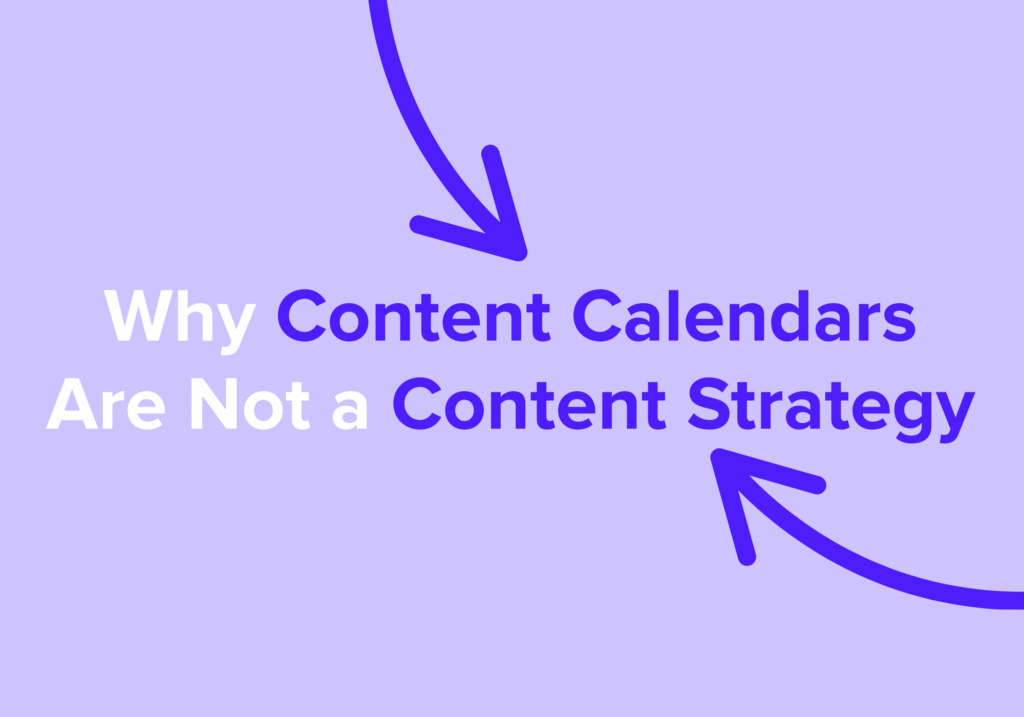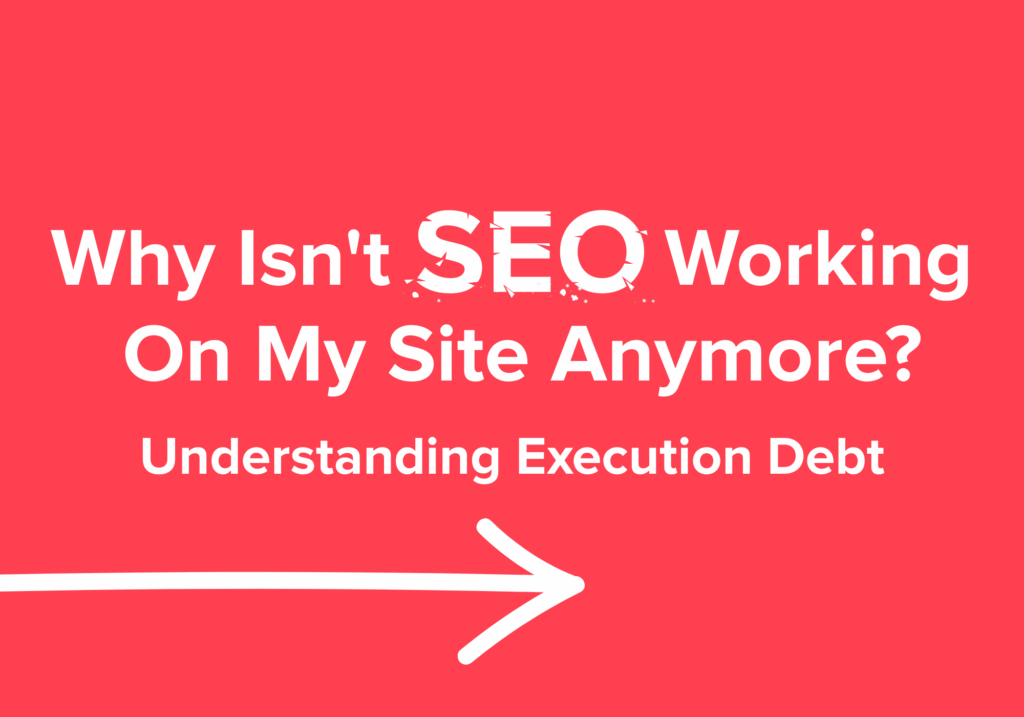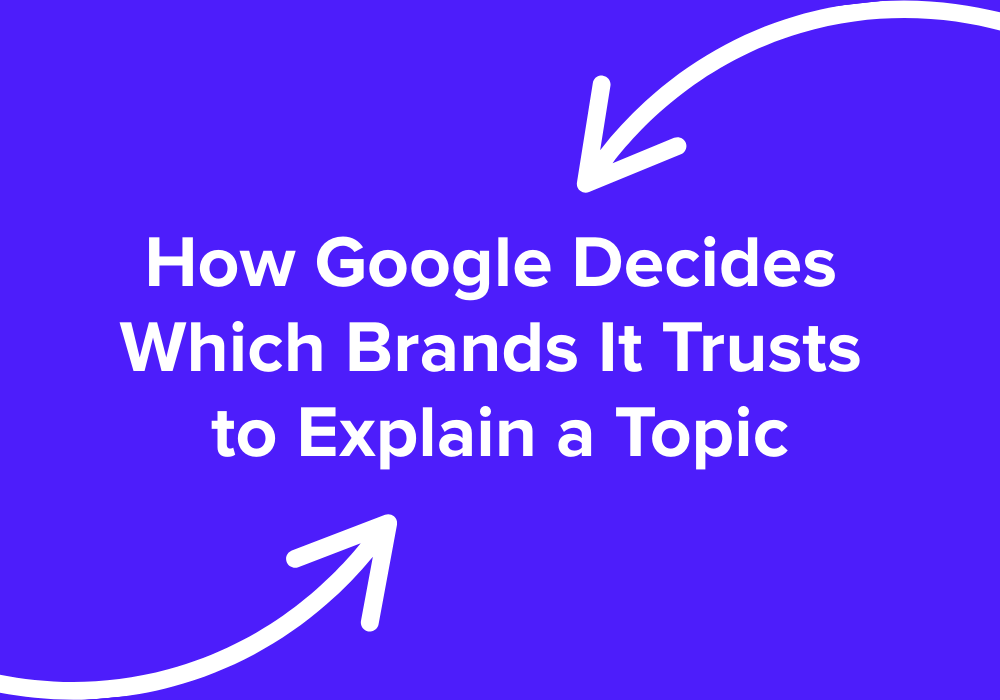Summary:
Traditional ecommerce SEO strategies are being upended. Google’s AI overviews, declining click-through rates, and hyper-personalized search results are reshaping conversion paths, forcing ecommerce brands to rethink how they drive visibility, authority, and conversions. To stay competitive, ecommerce businesses must pivot toward more dynamic, AI-aware content strategies. Ultimately, success will favor brands that embrace change, publish quality content, and proactively position themselves for discoverability across both traditional and emerging digital surfaces
Ecommerce businesses have long deployed robust SEO content strategies to fuel organic growth. Marketing strategists understood that expanding their customer base, establishing brand authority, and maximizing visibility demanded SEO investments beyond well-optimized product page copy. Content writers crafted robust long-form content, carefully targeting industry-specific keywords and weaving Google-friendly search phrases into headers. Engaging searchers through educational content became a proven strategy for digital storefronts to rank higher on SERPs, reliably grow their traffic, and increase conversions.
However, in the era of AI overviews and zero-click searches, this model of organic success is being challenged. The ecommerce space is no stranger to upheaval. Every new Google algorithm triggers a flood of strategic reassessments from the top minds in the SEO industry. New SERP features reliably cause both exhilaration and panic throughout SEO agencies and within internal ecommerce marketers alike. While volatility is certainly not new, it’s undeniable that search engines are in a period of exceptionally rapid transformation. Google’s AI overviews now permeate every search result, driving down once-steady blog traffic. Websites across industries have watched their organic growth stagnate as zero-click searches skyrocket and as LLM-powered search sees wider mainstream adoption.
So, how can ecommerce brands leverage SEO against the swiftly changing digital landscape? What does a future-proofed SEO strategy look like against a backdrop marked by unpredictability, innovation, and ever-changing user behavior? In this article, we’ll explore how ecommerce content strategies are evolving in the age of AI search and how your business can maximize visibility, authority, and conversions despite the cascade of changes.
A new era of ecommerce SEO: How is the modern search experience changing?
Traditional ecommerce SEO strategies that emphasized keyword rankings and CTRs are evolving. AI-generated search overviews, the proliferation of zero-click search results, hyperspecific search behaviors, and diversified conversion paths require SEOs and ecommerce marketers to adapt their understanding of some of the core tenets of content strategy.
1. AI overviews and zero-click searches are exploding.
Generative AI now dominates almost every SERP. AI-driven summaries offer searchers comprehensive, synthesized answers to their queries at the very top of any search results page. Owning this top-of-the-page real estate used to be the SEO content writer’s goal, and though AI overviews do cite blog posts, research demonstrates that websites no longer see the dramatic organic traffic benefits from this positioning.
Users do not need to click through to websites to find essential information. Instead, concise, relevant AI-generated content quickly resolves user queries without requiring them to navigate away from the SERP. These “zero-click searches” define the modern search experience and fuel the anxieties of ecommerce marketers and SEO strategists.
This shift significantly impacts how ecommerce businesses attract and engage customers, threatening the traditional conversion path model and challenging ecommerce businesses accustomed to relying on attracting new customers via richly researched content. However, there’s a silver lining for ecommerce brands. Customers with a transactional search intent still need to purchase products. While AI overviews may decimate traffic, they are not a replacement for conversions. Your customers still need your products. If zero-click searches are cutting into your site revenue, it's time to reevaluate how you’re discovered online.
2. User behavior is increasingly intent-focused and hyper-personalized.
Searchers are savvier than ever. They expect rapid, clear answers to their queries. Modern ecommerce content needs to deliver immediate value and actively invite engagement to pull users off the SERP and deeper into the funnel. AI overviews now present ultra-customized responses to every searcher inquiry, making the competition much fiercer for clicks, attention, and conversions.
Google’s new AI Mode previews a search future dominated by hyper-personalization and signals a further decline in click-through rates. Google’s AI-guided search will offer answers informed by Gemini 2.5’s deep research and advanced reasoning capabilities. Searchers can use voice to dictate questions, take photos, or upload images to add context to queries, and actively guide the results page. AI Mode’s influence will be seen across the ecommerce space, as Google boasts that the tool can compare and recommend products and brands to users.
This all indicates continued changes in the world of organic traffic, ecommerce, and digital visibility. The journey that searchers will take to discover your site is going to continue to transform in unpredictable ways. Emphasizing visibility, elasticity, and creativity in your content strategy is going to be crucial for maintaining relevance. Ecommerce SEO strategies must adapt to these changes in real-time, prioritizing content that boosts visibility and paying close attention to broader brand perception.
3. Discoverability isn’t limited to Google Search.
Google Search has historically been the SEO kingmaker. Front-page visibility on Google was synonymous with organic success, dictating keywords and topics for ecommerce content calendars. However, the paths to your products now extend well beyond traditional search.
Search platforms are diversified, with social media and entertainment websites like TikTok, Reddit, YouTube, Discord, and Instagram serving users both educational and transactional content. These platforms have a huge influence on product reviews and recommendations, as well as product discovery and brand visibility. Voice and conversational interfaces like Alexa, Google Assistant, and Siri have reshaped how users ask questions and refine results through conversational language. Streaming services like Netflix and Spotify have acclimated users to AI-informed recommendations and personalized algorithms. LLMs like ChatGPT point users to product pages and services, with brands increasingly noticing conversions coming from AI-driven referral sources.
Multimodal discoverability demands optimization across all digital touchpoints. Content needs to be comprehensive in scope, fostering community engagement, inviting user interactivity, and emphasizing LLM discoverability through structured data and schema markups.
Learn more: Is SEO Dead? 7 Reasons Why SEO Still Matters in 2025
How to fuel ecommerce growth in a zero-click world
Despite the nervous chatter and chaos, growth opportunities abound for ecommerce brands. The changing nature of search can be overwhelming, but it’s actually a moment brimming with possibility and energy. SEO is as critical to ecommerce success as it's ever been, but it requires strategic evolution and dynamic adjustments. This is a transition not every ecommerce brand will successfully make, but there are many ways to position yourself for ongoing relevance.
1. Write content for people, structure it for machines.
Your content needs to be discoverable by AI models, as well as search engines and human readers. Create meaningful, rich content that educates people about your industry, product lines, and brand. Leverage semantic HTML, clear content hierarchy, and schema markup to ensure that AI tools can also retrieve this relevant information from your copy. Maximize the opportunities for your content’s organic reach by verifying that your robots.txt files support discoverability and citation. Blocking AI bots is rarely a wise choice for ecommerce brands diversifying their traffic acquisition.
Your content, however, should prioritize complexity and nuance. You’re still writing content for a human audience, even if it’s being repurposed and repackaged by AI algorithms. Don’t let declining organic traffic fool you into weakening your content output with shallow, AI-written copy. Deeply-researched, well-written content is still crucial to your organic success, despite the changes to SEO KPIs.
2. Focus on E-E-A-T for LLM credibility.
E-E-A-T (Experience, Expertise, Authoritativeness, and Trust) is a core component of SEO, and it's more relevant than ever. Strong brand reputation establishes credibility with Google. By aligning your content with the E-E-A-T framework, you position your brand favorably within LLM-powered search experiences.
Showcase authentic experiences through client testimonials, real-world examples, and original research. Publish detailed, nuanced content that demonstrates your subject matter proficiency and depth of knowledge. Lean on authority and signal your industry leadership by interviewing SMEs and citing them as authors and sources in your content.
Potential customers need to trust you before they buy your products, and LLMs need to trust you before elevating your brand in their responses. Use content to establish your E-E-A-T prowess to enhance visibility and engender higher confidence from your audience.
3. Target intent, not just traffic.
High SERP rankings no longer guarantee high volumes of clicks and exponential organic traffic growth. While claiming top position on results pages is still an important goal, providing users with clear solutions, value propositions, and educational content is increasingly more important. Content should target shoppers at every stage of the funnel, matching the user’s intent. Aim for improved conversion rates by aligning content directly with customers’ intentions. By offering users exactly what they’re hunting for, you facilitate better engagement, return visits, user satisfaction, and long-term customer retention.
AI-powered search facilitates more hyperpersonalized search results. Content should reflect this transition by focusing on complex topics that may challenge traditional notions of keyword relevancy and optimization. Integrate conversational tones and long-tail keywords. Accurately targeting intent is a powerful way to ensure your content matches the preferences of the AI algorithms.
4. Prioritize topical authority over keyword density.
Modern search algorithms understand content contextually, not by keyword frequency. Depth and relevance outweigh repetition, and comprehensive coverage helps educate LLMs on the nuances of your brand and product lines. Create content clusters around your business's core pillars, strategically interlinking supporting articles. This helps users seamlessly navigate your website and clarifies content relevance and context to search engine crawlers.
Topical authority fosters a better user experience and lends higher credibility, both crucial factors in maintaining visibility and relevancy despite the volatility of modern search. Deep topical authority encourages long-term visibility and reduces dependence on keyword fluctuations and the SERP upheavals that accompany algorithm updates and new AI-powered search tools.
5. Build brand visibility across channels.
You want to be wherever the conversations about your industry are happening. Modern SEO demands holistic, cross-platform strategies that establish your brand presence wherever your potential customers gather. Develop content tailored for multichannel discovery. Actively monitor and participate in niche forums and whatever industry-specific communities that apply to your users, as these spaces are increasingly dictating brand reputation and driving conversions.
For example, a January 2025 study found that 71% of respondents selected Reddit as the favored choice for “immediate answers to specific questions”. 23% of respondents researched brands or products they had not previously considered due to Reddit recommendations, and 42% found Reddit more valuable in their decision to purchase a product than all other forms of recommendations.
These are the conversations you want your brand to be visible in, but they demand a more nuanced strategy than making a burner account and hyping your product on a subreddit. Create the content and build the reputation that positions your brand to be the first one recommended in these conversations. Observe the questions being asked and the challenges being discussed in these communities and address them in your omnichannel marketing efforts, even if they don’t neatly match traditional keyword strategies.
Educate LLMs on how to reference your brand by crafting content that clearly explains your value and your competitive advantages. Create content that compares you to brands you want to be in conversation with, addresses the problems your product solves, and expands your product’s reach.
6. Optimize your homepage UI/UX.
Brand awareness, authority, and trust are essential to modern ecommerce success. Make sure your customer’s first impression is a positive one. It’s harder than ever to predict where customers will land on your website, but referral traffic from social media sites or LLMs often points users to your homepage. Engaging, logical homepage UI/UX is crucial to converting these potential new customers. Use clear, action-oriented CTAs that guide users through the buying process, offering opportunities for deeper education when needed.
Intuitive navigation also remains a critical component for conversion optimization. Don’t hide your products from potential customers behind overly complicated navigation menus or inaccessible collections. Use filter banners, supercategory pages, and dynamic shopping guides to provide your repeat customers with quick checkouts and offer new customers the assistance needed to make that first purchase.
7. Experiment with your content.
LLMs feed off information. They cannot replace human content writers because they need expertly written, deeply researched content. Ecommerce sites must continue to produce well-written blog content to flourish. However, this doesn’t mean you should stay locked into repeating what’s been historically successful for your site. Brands must be willing to try new types of content to maintain visibility.
This could be expanding into audio or video formats. Host a podcast with industry insider expertise or start a YouTube channel with helpful how-tos and DIY demonstrations. Try short-form video content on Reels or TikTok to organically generate buzz around your products. Create your own unique images for use across channels. Experiment with different types of content, pursuing long-tail keywords or conversational queries that defy traditional keyword strategies.
Monitor and adjust. Your content strategy cannot remain static.
Some of your competitors will disappear. Don’t become one of the ghosts.
As search transforms in the coming months and years, ecommerce brands that fail to adapt their strategies will fade away. After all, organic traffic is closely tied to all facets of customer acquisition. Organic visits are an opportunity to capture users’ email addresses for marketing campaigns and create retargeting opportunities for paid ads. They provide touchpoints that unlock insights into customer behaviors and strengthen data-driven business decisions. You need a strong organic presence to thrive online. Reorienting your content strategy to keep you competitive is essential for continued growth.
Capitalizing on changes eagerly and early is key to putting you ahead of your competition. Brands of all sizes and across every industry face declining click-through rates and evolving search behaviors. Choose to be a company that boldly and strategically embraces the uncertainty.
Learn more: SEO + Email: A Conversion-Driving Duo
Create future-ready ecommerce content strategies
At tiptop Search + Marketing, we’re constantly reevaluating our approach to organic growth and online visibility. We’ve developed a proprietary AI optimization framework called C.L.A.R.I.T.Y. to assist our clients in achieving accurate and consistent representation across LLMs. We’re closely monitoring every new SERP feature rollout and enhancing our methods to track AI visibility. In addition to content strategy, we offer technical SEO expertise and full-service SEO services to help ecommerce businesses capture audiences and drive success.
Contact us to discover how we can assist your brand in building an ecommerce content strategy tailored to meet the challenges of the current moment.
You may also like:





